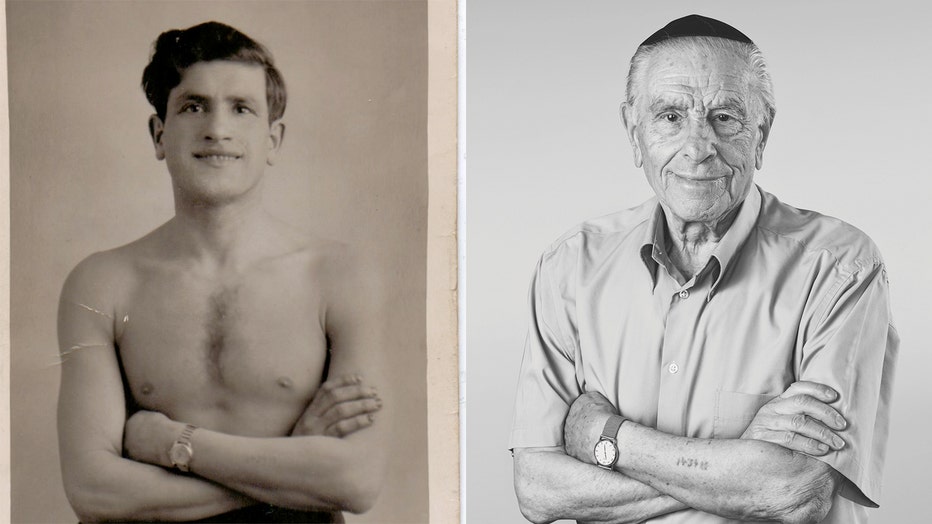Tampa Holocaust survivor remembered after life spent fighting tyranny
TAMPA - One number could never define Nat Ross' life, but it's among Dana Arschin's first memories of her grandfather, her "Poppy."
"He would pull up the sleeve on the shirt he was wearing and he would show me the number that was branded on his arm," said Arschin. "143499."
Nat was born on March 8, 1922, in Pultusk, Poland…a small city about 200 miles north of where the Auschwitz concentration camp would be located.
He was captured early in the Nazis' effort to exterminate Jews from Hitler's Germany.
In Auschwitz, he was chosen for forced labor, while millions of innocent people were murdered.
"You can imagine what kind of mess I was and how I felt. I wasn't even myself. I didn't care what would happen to me," he told an interviewer from the Shoah Foundation in 1996. "When I pass away, another 10 years there will no one alive, so I want to tell the truth of how I went through life..."
As allied forces closed in on the Nazis, he was one of tens of thousands of Jews who were forced on a death march.
Nat escaped, but was recaptured. His POW camp was finally liberated by American forces.
"It's more than a miracle how I survived," he told the Shoah Foundation.
He would eventually move to America, marry Celia, his wife of 69 years, raise two children in New York, and one day be blessed with grandchildren and great-grandchildren.

Nat Ross (Photos courtesy (L) Dana Arschin and (R) Brian Marcus)
Granddaughter Dana Arschin has spent her career chronicling her grandfather's life, first as a news reporter, then as a Holocaust documentarian.
"Even though he was just a few months shy of his 102nd birthday, we still thought he would live forever," Arschin.
On Dec. 23, Nat Ross, Dana's Poppy, passed away.
With anti-Semitism on the rise around the United States, and with Israel again at war following the deaths and kidnappings of innocent Israelis, Dana says now is a critical time to consider what Poppy went through.
"It just drives home the importance of having to tell these stories before it's too late," said Arschin. "And we always say the expression, history is doomed to repeat itself. And it is."
Nat overcame a stroke 10 years ago and moved to Tampa during the pandemic.
He was honored by a Tampa City councilor for what his life symbolized, and received hundreds of letters after word of his life journey spread.
He also accepted as many interview requests as he could.
"I saw it with my own eyes," Ross said in 1996. "The screaming. They took them to the gas chamber. They knew they were going to be gassed."
Now, it's up to others to make sure "never again" is a reality.
"That perseverance and that will to look forward instead of backwards and instead of wallowing in your sorrow, that is something that me and my family that we will always carry with us," said Arschin.
One thing about Nat though, is that early in life, he showed his prisoner number to very few people. Later in life though, that changed.
"To him it was always just proof that he survived," said Arschin. "He always wanted to focus on the fact that life could be good."
The number, 143499, is the least of what Nat Ross will be known for.


